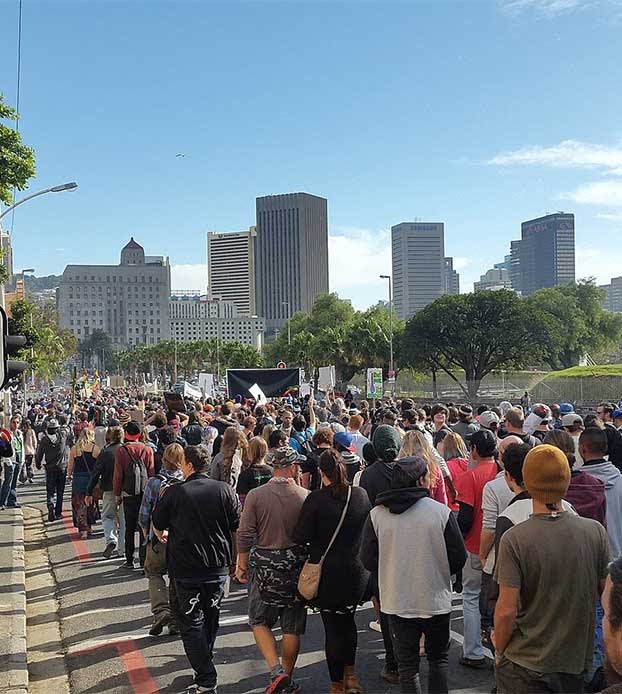As cities and states across the United States go into lockdown in efforts to contain or slow the COVID-19 pandemic, often-times ordering non-essential businesses shuttered, medical marijuana patients and recreational users are stocking up for the next uncertain months. Dispensaries are focusing on delivery, and state and local authorities are scrambling to ensure patients can access their medicine without creating a greater risk of infection.
>>UPDATED: Check where dispensaries are still open
Keeping adult-use dispensaries open has become crucial for ensuring access to medical dispensaries because many medical patients started buying their cannabis from retail, recreational stores when it became legal for adult use in many states.
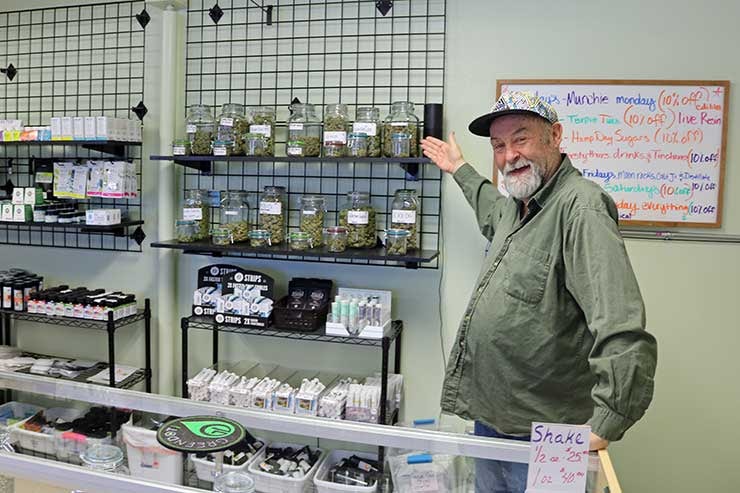
“Many of our retail partners are seeing up to four times the typical volume on orders placed,” Travis Rexroad, the director of communications for Weedmaps said on Tuesday. Rexroad said that the company, one of the leading online directories for cannabis dispensaries and cannabis product vendors, has noticed a massive shift towards delivery and pick-up in areas where physical dispensaries are still open.
“We have seen a significant increase in both delivery and orders as additional measures have been implemented to combat the spread of COVID-19. As of March 14, we observed a week-over-week increase of 133% on deliveries and 121% increase on orders.”
In addition, Rexroad said the company has seen “an increase in the purchase of edibles and cannabis products that are more discreet, which makes sense if consumers are working from home with people around or are practicing self isolation.”
Classifying dispensaries as essential services
The medical marijuana advocacy group Americans4SafeAccess sent a letter to governors and directors of state medical cannabis programs on Monday, calling on them “to take immediate action to ensure that patients continue to have access to medical cannabis and that the supply chain is not interrupted,” during the COVID-19 pandemic.
While local authorities across the country are ordering businesses shut and residents to shelter in place — an attempt to “flatten the curve” of new COVID-19 infections — state and local governments are also taking steps to ensure that the public has access to cannabis and cannabis dispensaries, which are increasingly seen as essential services in a time of crisis.
In San Francisco on Tuesday, city officials ruled that cannabis dispensaries could stay open for pickup or delivery over the next three weeks, despite being told by city officials a day earlier that they had to close along with all nonessential business in the city.
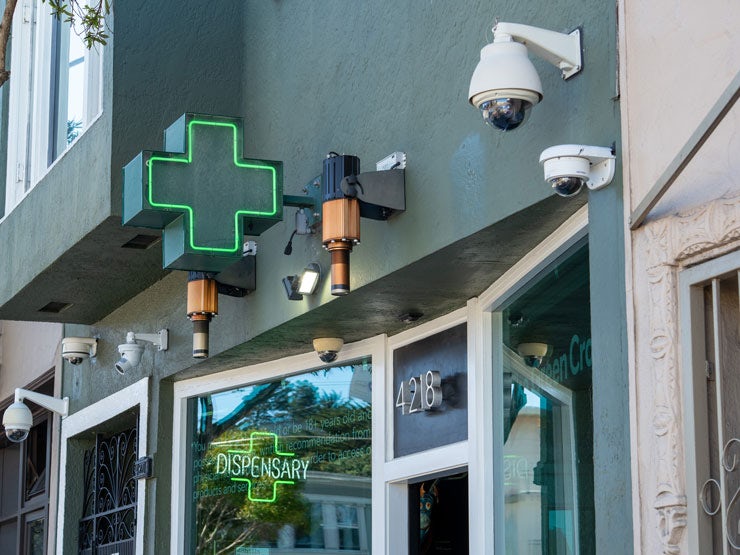
In a tweet announcing the decision, the San Francisco Department of Public health said “cannabis is an essential medicine for many San Francisco residents” and referred to dispensaries as “essential business during this time.”
In Pennsylvania this week, Governor Tom Wolf and the State Department of Health strongly encouraged all types of businesses from restaurants, bars, casinos, and hair salons to close, but included marijuana dispensaries in the same essential businesses category as pharmacies.
In New York on Tuesday, the Department of Health stated that in the event that non-essential businesses are forced to close “Registered Organizations in the Medical Marijuana Program will be considered essential and allowed to remain open because they are considered medical providers.” In addition, they ruled that until April 16, businesses who have been approved for marijuana delivery may expand their delivery services statewide without first seeking the department’s approval.
Encouraging delivery and curbside pick-up
That said, the department stated that dispensaries can only provide pickup service at the front door of their storefronts.
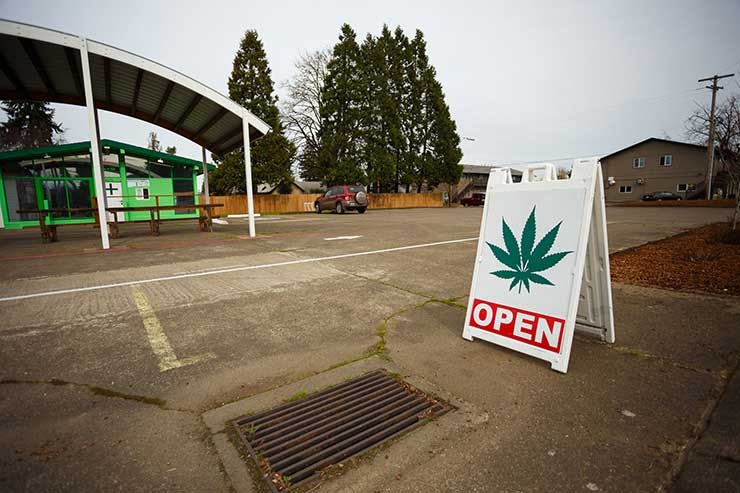
In Nevada, as the Silver State’s famed casinos were ordered shut down en masse, dispensaries were allowed to stay open. Guidelines issued by health authorities, however, stipulate that “cannabis stores and medical dispensaries should only remain open if employees and consumers strictly adhere to the social distancing protocol. The Nevada Health Response Center is encouraging consumers to use delivery services and not congregate in stores.”
The Source, a dispensary chain with branches in Henderson and Las Vegas, issued a statement encouraging customers to order online for pick up or delivery. It also stated that it has hired security and staff to direct traffic in its parking lots and advised customers to follow instructions and remain in their vehicles until staff notifies them they are ready for them to enter to complete their purchase.
Under guidelines issued Monday by the State of Illinois, dispensaries will be able to sell medical cannabis on their property or a public walkway or curb adjacent to the business. They will not be allowed to perform deliveries, must ensure that patrons are not within six feet of one another, and “must be vigilant in their sanitation practices,” including by ensuring that all surfaces patients are required to touch are disinfected every 30 minutes.
In a press release, Toi Hutchinson, the senior advisor for cannabis control for Governor J.B. Pritzker said, “our top priority is to minimize the risk of and protect as many people from exposure to COVID-19,” while at the same time “ensuring medical patients have access to the medicine they need.”
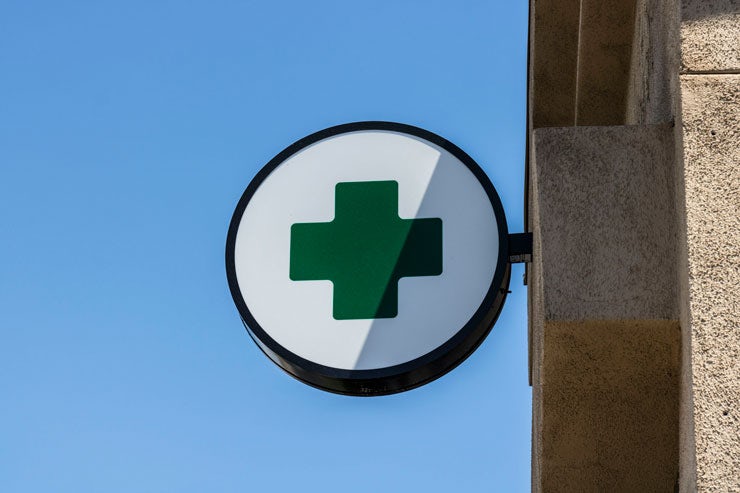
In Massachusetts, the Cannabis Control Commission stated it will start working remotely this Monday and that “Medical Marijuana Treatment Centers have been advised they may consider the promotion and geographic expansion of delivery service and to remind patients of the ability to acquire up to a 60-day medical grade marijuana supply.”
In Arkansas, however, state authorities announced that all Arkansas Marijuana Card clinics will be closed until April.
Morgan Fox, media relations director for the National Cannabis Industry Association, told The Cannigma that while it varies, business owners he’s spoken to are prioritizing patient access and safety of staff and their communities, with some voluntarily closing or becoming much more limited in the amount of in-person transactions they are allowing.
Fox added that even at dispensaries that are remaining open, most people are calling ahead and making their purchases quickly, with the companies no longer practicing the “delicatessen” type experience where a customer asks to look at different strains, sticking their nose into jars, and coming into close proximity with dispensary staff.
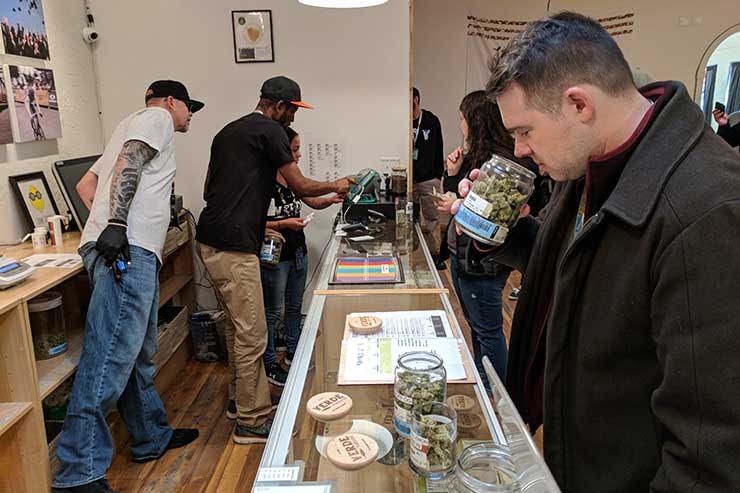
Unique challenges for cannabis businesses
But just like with the consumers stockpiling toilet paper and hand sanitizer, Fox said it’s “also up to consumers to be conscious and think of everyone else — heaven forbid, if things get worse consumers are going to have a responsibility to band together and ensure that patients they know will have access to medicine.”
Fox said that while the economic effects of COVID-19 will be felt by all types of industries, it may be especially difficult for dispensaries, because they have to deal in cash, lack of access to banking services, and are unable to deduct business expenses under federal tax code.
He also added that he hopes that when the COVID-19 pandemic is finally over, the US Senate will show its support for the cannabis industry by passing the SAFE Banking Act, which would allow banks to offer loans and banking services to marijuana companies.
In addition, Fox said that the current crisis and worries about marijuana supply show the need for legal home cultivation, which not only would allow patients and recreational users to produce their own supply and ensure access to cannabis, but also allow them to develop the skills they need to work in the cannabis industry.
He also sounded an optimistic tone, saying that just as he’d seen on social media the way in which communities are rallying around the local bars and restaurants that have had to shut their doors, “hopefully we’ll see this with the cannabis business as well.”
Sign up for bi-weekly updates, packed full of cannabis education, recipes, and tips. Your inbox will love it.

 Shop
Shop Support
Support




